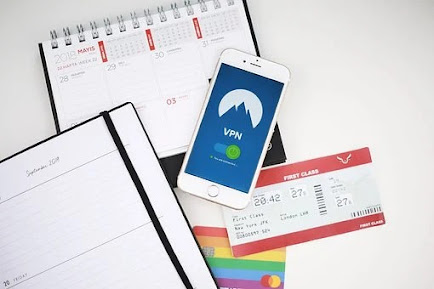5 Steps For You To Use VPN Safely
SHARE TWEET SHARE CORRESPONDENCE
The use of VPN (Computer-generated Private Network) is widespread in large companies. Especially those who have a lot of employees who exertion remotely. This type of system uses the public Internet network to create a private structure with the security of secret writing. Then it has other advantages like a lower cost than a dedicated link.
Simply using a VPN is not enough to ensure safe surfing. We know that more practices are required to take advantage of these virtual private networks. To help you out, we've highlighted 5 key steps to using a VPN safely. Scroll down to read them all
VPN security checklist
Use a lock switch
If your company's VPN connection goes down or fails,
computers automatically try to connect to the traditional Internet. This will
display all of the data.

For this motive, it is suggested to use a lock switch. If you lose your Internet connection, all associated software and applications will shut down to guarantee that the grid is not unprotected.
Invest in respectable firewalls
Firewalls are nothing extra than sanctuary devices for individuals
who access the Internet. They consist of an inner and an external network and
are intended to protect the network from intruders.
Hence, it is important to have this type of protection in
any VPN. You should also consider dedicated VPN service providers.
Don't forget staff training
In order to guarantee the security of your VPN connection,
contrary to the opinion of many, it is not enough to invest in the latest
technology. In fact, bestowing to a Kaspersky study, around 33% of
cybersecurity incidents occur due to human error.
For this reason, it is significant to promote high quality
employee training to ensure that all digital security guidelines are followed.
From creating secure access passwords to setting up rules of conduct for access
to certain websites and software.
All of these can give the service more protection.
Beware of DNS leaks
The Domain Name Server is nothing more than the service that
translates URLs into an IP address. When you use a VPN, it automatically
connects to a secure DNS offered by the service provider.
However, from time to time the processor may use a normal
DNS connection, which compromises the security of the network. Hence, it is
better to look for servers that have built-in DNS leak protection.
This avoids problems with leaks.
Change the protocol
When configuring the VPN protocol, it is important to choose
the most suitable one. In general, PPTP and L2TP are the best. That's because
the former uses 128-bit encryption and is the fastest of the protocols. L2TP,
on the other needle, has a higher level of security and is therefore slower.
On top of that, there is OpenVPN which is considered one of
the best protocols due to the speed of disconnection recovery.
menshealthupdates womensdayblog usweeklyblog myfavouriteceleb technologydominator


